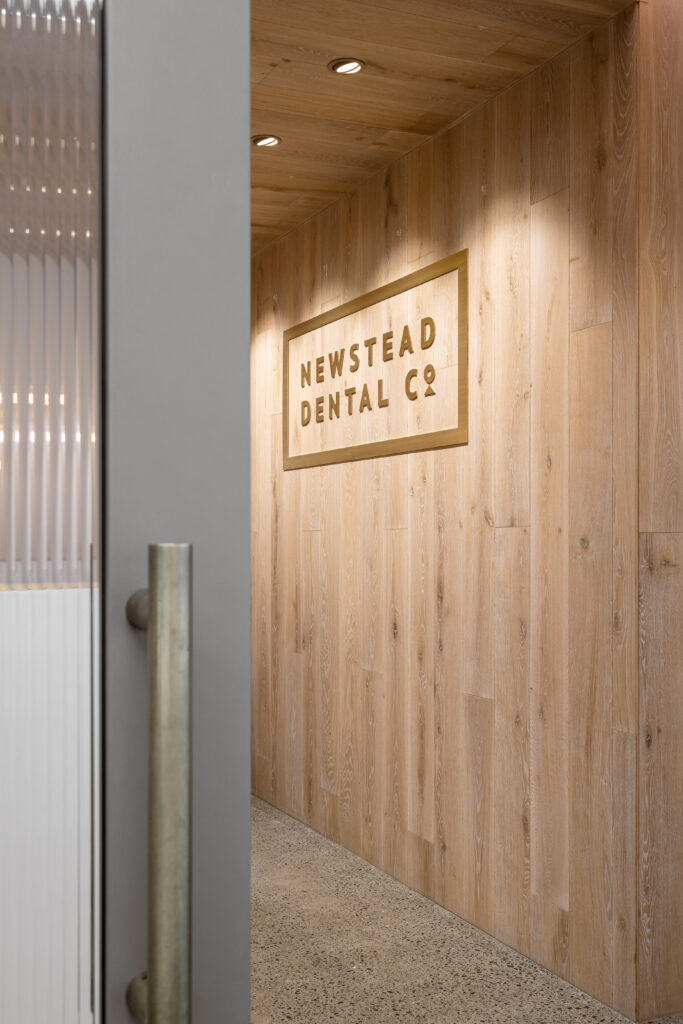Newstead Dental Co - the home of dental implants
Looking after the Newstead community since 2016.
We offer cutting-edge technology, expert care, and personalised treatment plans for unparalleled patient satisfaction.
We believe teeth are essential to enjoying life. They play a very important role in our general health and wellbeing. We are here to give that enjoyment back to those who have lost it.
Dental Implants
We replace missing/broken teeth using the latest in cutting edge technology - dental implants.
Mouth Rehabilitation
We take a whole mouth approach. We assess every aspect and treatment plan accordingly.
Dental Cleaning
We understand the importance of maintaining oral hygiene and provide the highest quality of care.
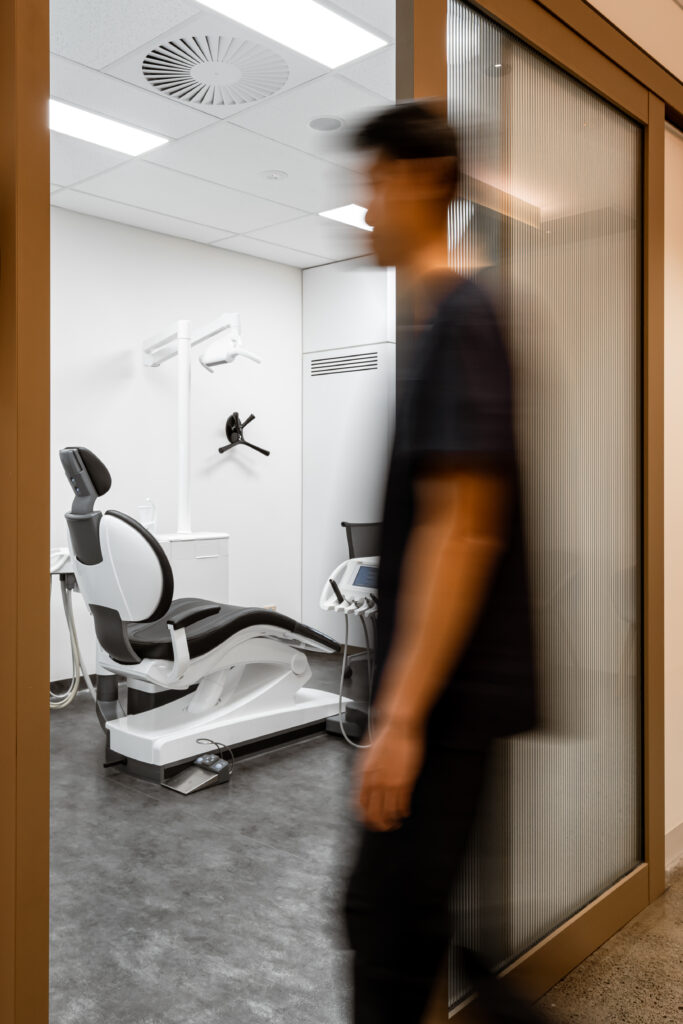
Missing teeth
Missing teeth can lead to bone loss in the jaw and cause adjacent teeth to shift, resulting in misalignment and a bad bite. These changes can increase the risk of gum disease and tooth decay due to difficulty in maintaining oral hygiene. Chewing difficulties from missing teeth may lead to nutritional deficiencies and affect speech clarity. Additionally, misalignment can contribute to jaw problems and chronic headaches. Addressing missing teeth with dental treatments like dental implants can help prevent these health issues.
Why Newstead Dental Co
Located in the heart of Newstead, this clinic offers personalised care, ensuring tailored treatment plans that deliver exceptional results. Their commitment to ongoing education and the latest dental advancements ensures the highest standards in implant procedures. Patients appreciate the clinic’s welcoming atmosphere, making the dental implant process smooth and stress-free. With a strong reputation and numerous positive reviews, Newstead Dental Co is the premier destination for dental implants in Brisbane.
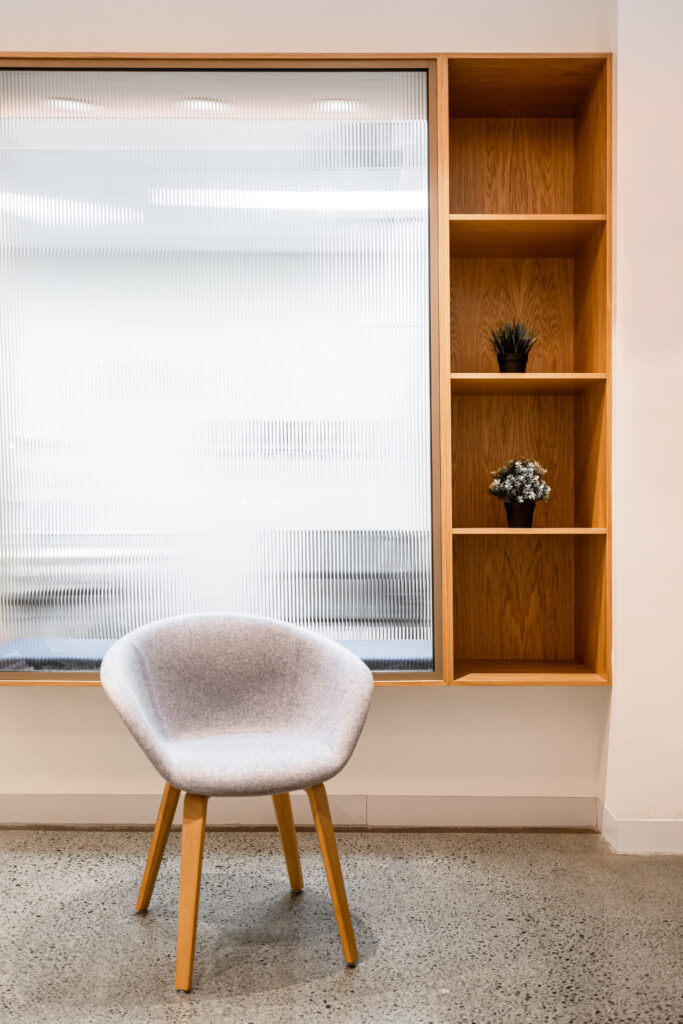

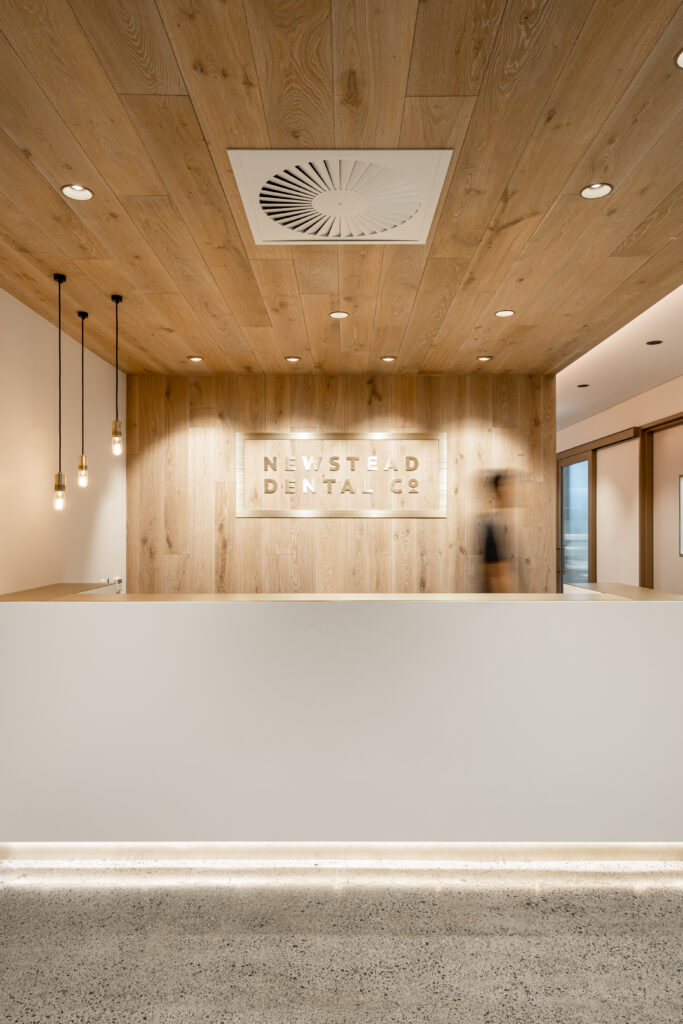
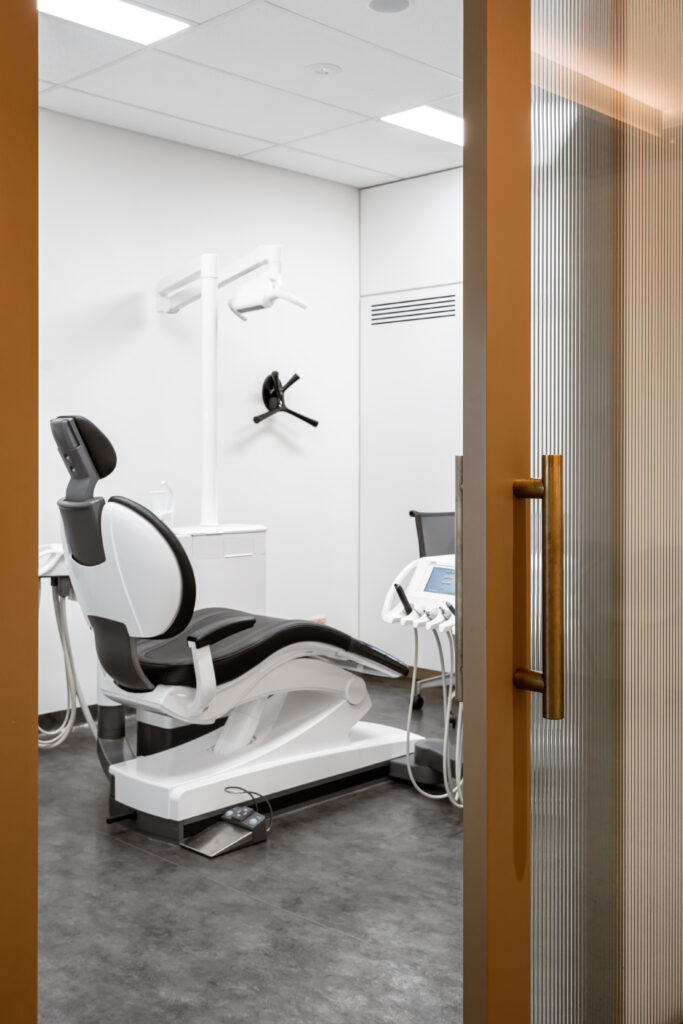
An architecturally designed practice that uses the latest techniques and technology
Newstead Dental Co offers a high end dental experience with state of the art facilities and highly experienced dentists.
Arriving at our practice for the first time, you’ll be asked to fill in a patient information form. You’ll then be taken through to our modern surgery, equipped with the latest in dental technology. We take the time to get to know you and your teeth, so that we can provide a tailored service delivered with the utmost care.
Providing great quality dentistry to Newstead, Teneriffe, Fortitude Valley and New Farm since 2017.
Newstead Dental Co has been providing great quality dentistry to Newstead and the surrounding inner city suburbs of Brisbane since 2017. The services we provide are clinically proven, using only the highest quality tools and materials. Our focus is on delivering a personalised service to our patients in a safe and comfortable environment.
All Heath Funds Accepted
Dental implants are artificial tooth roots typically made of titanium that are surgically placed into the jawbone to support replacement teeth, such as crowns, bridges, or dentures. They offer a permanent solution for missing teeth and mimic the natural look and feel of real teeth.
With proper care and maintenance, dental implants can last a lifetime. They are designed to be durable and resilient, offering a long-term solution for tooth replacement. Regular dental check-ups and good oral hygiene practices can help ensure the longevity of your dental implants.
While dental implants are a highly effective solution for most people with missing teeth, candidacy depends on factors such as overall oral health, bone density, and medical history. A thorough evaluation by a qualified dental professional is necessary to determine if dental implants are the right option for you.
Dental implant surgery is typically performed under local anesthesia to minimize discomfort during the procedure. Patients may experience some mild soreness or swelling afterward, which can be managed with over-the-counter pain medications. Most individuals find the discomfort to be manageable and temporary.
Dental implants offer numerous advantages over traditional tooth replacement options such as dentures or bridges. They provide a permanent solution that does not require alteration of adjacent teeth, promote bone health by stimulating jawbone growth, and offer superior stability and functionality for chewing and speaking. Additionally, dental implants look and feel like natural teeth, providing patients with renewed confidence and a seamless smile.
We are a private, boutique dental practice in Brisbane’s CBD. We combine treatments for general and cosmetic dentistry. Our dentists have extensive experience in accommodating our patient’s every need on an actively engaged, personal level to ensure a lifetime of great health and wellbeing.
We love providing superior service for our clients, beginning with easy online resources, through to a bespoke experience in our practice. We welcome you to enjoy the warm, inviting interiors of our purpose-built practice, where we’re likely to keep you comfortable and relaxed during your visit.
Most dental visits are check-ups. Regular check-ups will help your teeth remain cleaner, last longer, and can prevent painful problems from developing. For many people, a check-up every six months is recommended. We understand that everyone has different circumstances, and we’re want to find a regular checkup solution that suites your time capacity and budget.
If you’ve had a recent checkup and certain points were raised as a priority, such as gum disease, you may need to get infront of your dentist more frequently. Feel free to call in if you have any questions about how often you should be visiting the dentist.
Unfortunately, the Australian government does not cover the costs of most dental services. Medicare does, however, pay for some essential dental services for some children and adults who are eligible. IF you want to learn more about this, we recommend following up here.
Yes, you can, in fact, we recommend that you do. Leaving tooth decay, gum disease or other oral health issues untreated can be harmful. As your dental health has a big impact on your overall health, it can have a big influence on your baby’s health too. Even when you’re not pregnant we advise making regular checkups with the dentist.
Your dentist will often recommend making several appointments during your pregnancy to ensure the condition of your teeth and gums remain in top condition. If you’re planning to get pregnant soon, it’s a good idea to visit your dentist and get any outstanding dental issues such as impacted wisdom teeth taken care of first, to reduce the risk of complications.
There have been plenty of studies that have looked into how effective electric toothbrushes are compared to their manual counterparts. Each of these options have their own benefits and can do the job correctly, but it really comes down to personal preference.
Studies have shown that in general, electric toothbrushes have been found to be more effective in decreasing the build-up of plaque and gingivitis over time, in comparison with manual toothbrushes. When looking at the differences between rotating and vibrating electric toothbrushes, researchers also found that the rotating kind were more likely to provide your teeth with a more comprehensive clean.
One great benefit of electric toothbrushes is that they can be great for people who have decreased mobility. So if you know anyone with carpal tunnel syndrome, arthritis, or any condition that’s limited their access to brush their teeth, an electric toothbrush could be great assistance to them.
Did you know that you should replace your toothbrush or toothbrush head every 3-4 months? If you’re environmentally conscious, you may want to consider if single-use plastic toothbrushes are the best option. Electric toothbrushes can be a more environmentally friendly option, but with the popularisation of bamboo toothbrushes, these are also a more friendly and accessible option. It’s really up to you about what you prefer to use.
Electric toothbrushes can also be quite expensive, and there is the recurring cost of replacing the head every few months. If you’re looking at keeping your costs down, this is something you should consider if you’re thinking about making the switch.
What are the cons of manual toothbrushes? There have been some studies that found that people who used manual toothbrushes were more likely to brush harder than when using electric toothbrushes. Brushing can really damage your teeth and gums by wearing down the natural enamel we have on our teeth. You can still get a very effective clean by using using a manual toothbrush, just remember that you don’t need to scrub your teeth off, just brush away any build-up and give your mouth a good floss.
